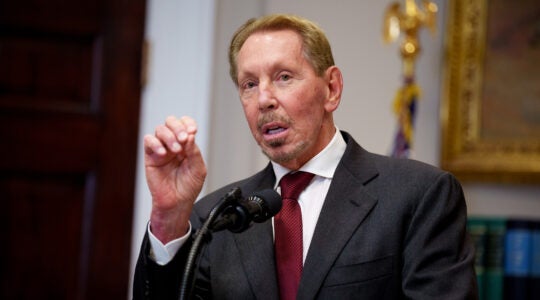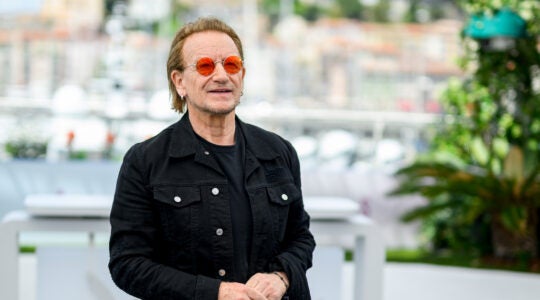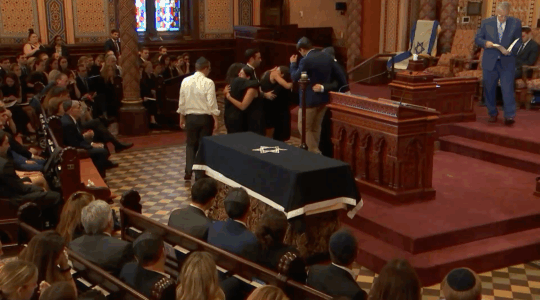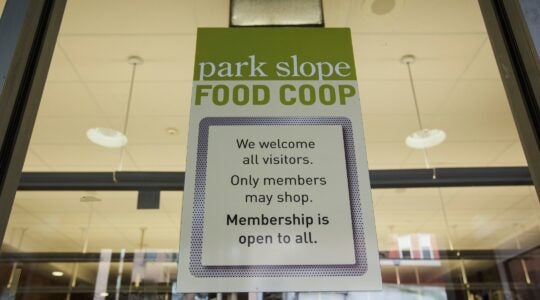
John Kerry, Jack Lew and Chuck Hagel are among President Obama’s latest string of political appointments who won’t get the green light unless confirmed.
Here is a list of 12 political nominations that led the Jewish community to raise an eyebrow.
12/11. 1978 William H. Webster, FBI Director (Carter) / 1991 Kenneth Ryskamp, U.S. Federal Appeals Court (George H.W. Bush)
Nominated to serve as the third FBI director, Federal Judge William H. Webster of St. Louis, Mo. faced pressure from the Anti Defamation League over his alleged affiliation with groups excluding Blacks, Jews and women.
The Anti-Defamation League of B’nai B’rith said that Webster, a member of the U.S. Circuit Court of Appeals since 1973, was affiliated with the St. Louis Country Club which allegedly has barred Jews and Blacks from membership, the Noonday Club, an all white male group, and an organization known as the "Mysterious Order of the Veiled Prophets" which has been attacked by civil rights leaders as racist.
Webster was confirmed and went on to become Director of the CIA, the only American to have served in both positions. He currently serves as Chairman of the Homeland Security Advisory Council.
In 1991, a similar allegation was levied against federal appeals court nominee Kenneth Ryskamp. The ensuing controversy was enough to keep his nomination from making it to the Senate floor.
10. 2006 Robert Gates, U.S. Defense Secretary (George W. Bush)
During his Dec. 2006 confirmation hearings to succeed the hawkish Donald Rumsfeld as Defense secretary, Gates had a foreign policy slip-up related to Israel:
During his Senate confirmation hearing in December, Gates spoke of Israel’s presumed nuclear arsenal as a fact, raising eyebrows among veteran diplomats used to Washington playing along with Jerusalem’s refusal to confirm or deny that it has nukes.
9. 1981 General Alexander Haig, Secretary of State (Reagan)
The confirmation hearing of former Nixon Chief of Staff Alexander Haig didn’t include much discussion about the Arab-Israeli conflict, but did involve one memorable exchange that put Reagan administration spokespeople on the defensive with the Jewish press in the early months of Haig’s brief 1.5-year tenure:
Regarding the PLO, Sen. Christopher Dodd (D. Conn.) pointed out that in an interview in the New York Times Dec. 18, Haig was quoted as saying in part, "One must be careful in the use of the term PLO. The PLO is an organization made up of elements with various interests. Some are just and reasonable while others are obviously dominated by the East, financially as well as ideologically …"
Haig told Dodd he did not recall an interview in the Times. He added, "But I have said in the past that when people refer to the Palestinians at large they are talking about a number of factions and geographic sources and attitudes ranging from the most benign to some who are clearly under the wing and sponsorship of the Soviet Union. And I think, that is, I hope that is how the confusion got generated — the Palestinians per se and the other, the PLO and the peace process." Full Senate confirmation is a virtual certainty next Tuesday, Inauguration Day.
8. 1939 Felix Frankfurter , U.S. Supreme Court Justice (FDR)
After being nominated by Roosevelt to replace the seat of Benjamin Cardozo, Frankfurter was the first U.S. Supreme Court nominee to appear in person before the Senate Judiciary Committee. While some objected to Frankfurter’s appointment owing to his Jewish identity, one Washington attorney attempted to frame this as a Jewish concern:
George E. Sullivan, Washington attorney, objected that the nominee was foreign born and had "alien affiliations." Sullivan also opposed the nomination on the ground that it would "wrong our Jewish Americans" and "would promote racial intolerance by making other loyal citizens believe that he typifies the Jewish American. He has an international mind, not the mind of an American Jew."
[[READMORE]]
7. 1974 Nelson Rockefeller, Vice President (Ford)
Ford’s Vice-President designate Nelson A. Rockefeller made JTA headlines when his House Judiciary Committee testimony revealed that he would neither recognize nor condemn the Palestine Liberation Organization.
6. 1982 George Shultz, Secretary of State (Reagan)
After Haig’s brief tenure, Shutz held America’s top diplomatic slot under the Reagan administration for six and a half years, including the 1983 Beirut barracks bombing and Israel’s First Lebanon War. He was also credited with initiating shuttle diplomacy between Israel and the PLO in 1988. Prior to his confirmation, Shultz’s appointment was scrutinized by some in the pro-Israel camp owing to his ties to the Bechtel group, the international San Francisco-based engineering and construction firm conducting business with Arab nations, including Saudi Arabia. One particular act of protest caught the attention of JTA:
WASHINGTON, Jul. 18 (JTA) – While the Senate Foreign Relations Committee conducted its confirmation hearing of George Shultz as Secretary of State last week, a Connecticut Rabbi fasted outside the Senate Office Building to protest the appointment of the 61-year-old economist and Cabinet officer in the Nixon Administration.
Rabbi Ephraim Rubinger, of Temple B’nai Abraham in Meriden, who ended the fast when the Senate confirmed Shultz last Thursday charged that Shultz had worked actively against Israel while president of the Bechtel Group, the San Francisco based international engineering and construction firm which has a multi-billion dollar relationship with Saudi Arabia.
But among Jewish spectators who heard Shultz testify before the Committee the view was divided. One long-time observer of the Washington scene saw reasons for optimism in Shultz’s expression of support for the security of Israel while urging the need for strengthening ties in the Arab world. He cautioned detractors to wait and see what the new Secretary does.
However, others, including some Israelis, were upset by what they saw as a complete reversal of the positions taken by Shultz’s predecessor, Alexander Haig. Some claimed that Shultz was enunciating the Saudi Arabian line and they foresaw major clashes between the Reagan Administration and the government of Premier Menachem Begin. They foresaw U.S. pressure on Israel aimed at a withdrawal to the pre-1967 borders.
5. 1994 Strobe Talbott, Deputy Secretary of State (Clinton)
While confirmed by the Senate, Strobe Talbott’s Israel record was called into question by the Zionist Organization of America and the National Jewish Council, citing writings in the 1980s and early 1990s while he was a Time magazine correspondent.
4. 2001 John Ashcroft, U.S. Defense Secretary (George W. Bush)
Ashcroft’s religious beliefs became a source of concern for Jewish groups, who referred to his remarks during a 1999 speech at Bob Jones University. "Because we have understood that our source is eternal, America has been different," Ashcroft said at the South Carolina school. "We have no king but Jesus." Ashcroft added, "If America is to be great in the future, it will be if we understand that our source is not civic and temporal, but our source is godly and eternal."
3. 1991 Clarence Thomas, U.S. Supreme Court Justice (George H.W. Bush)
Thomas’ confirmation hearing was best remembered for the allegations of sexual harrassment by Anita Hill. The National Council of Jewish Women registered their concern regarding the matter along with their belief that Thomas might overturn Roe v. Wade. Coming to Thomas’ defense in the Anita Hill matter was Jewish senator Arlen Specter. In the next election cycle, Specter’s tough interrogation of Anita Hill was cited by Democratic challenger Lynn Yeakel as the reason she chose to run against him. Other Jewish groups expressed concern with Thomas’ prior praise of Louis Farrakhan, Black Muslim leader known for making anti-Semitic comments. After a lengthy battle, Thomas’ nomination was approved.
2/1. 1987 Robert Bork, U.S. Supreme Court Justice (Reagan) / 1987 Douglas Ginsburg, U.S. Supreme Court Justice (Reagan)
A number of Jewish groups were outspoken regarding Bork’s stand on minority and women’s rights and church/state issues. After the Bork nomination was shot down, some Jewish leaders suspected that President Reagan’s second choice, Douglas Ginsburg, may have been a play at identity politics. Ginsburg’s appointment went up in smoke over revelations that he’d used marijuana, paving the way for Anthony Kennedy to take the bench.
JTA has documented Jewish history in real-time for over a century. Keep our journalism strong by joining us in supporting independent, award-winning reporting.





